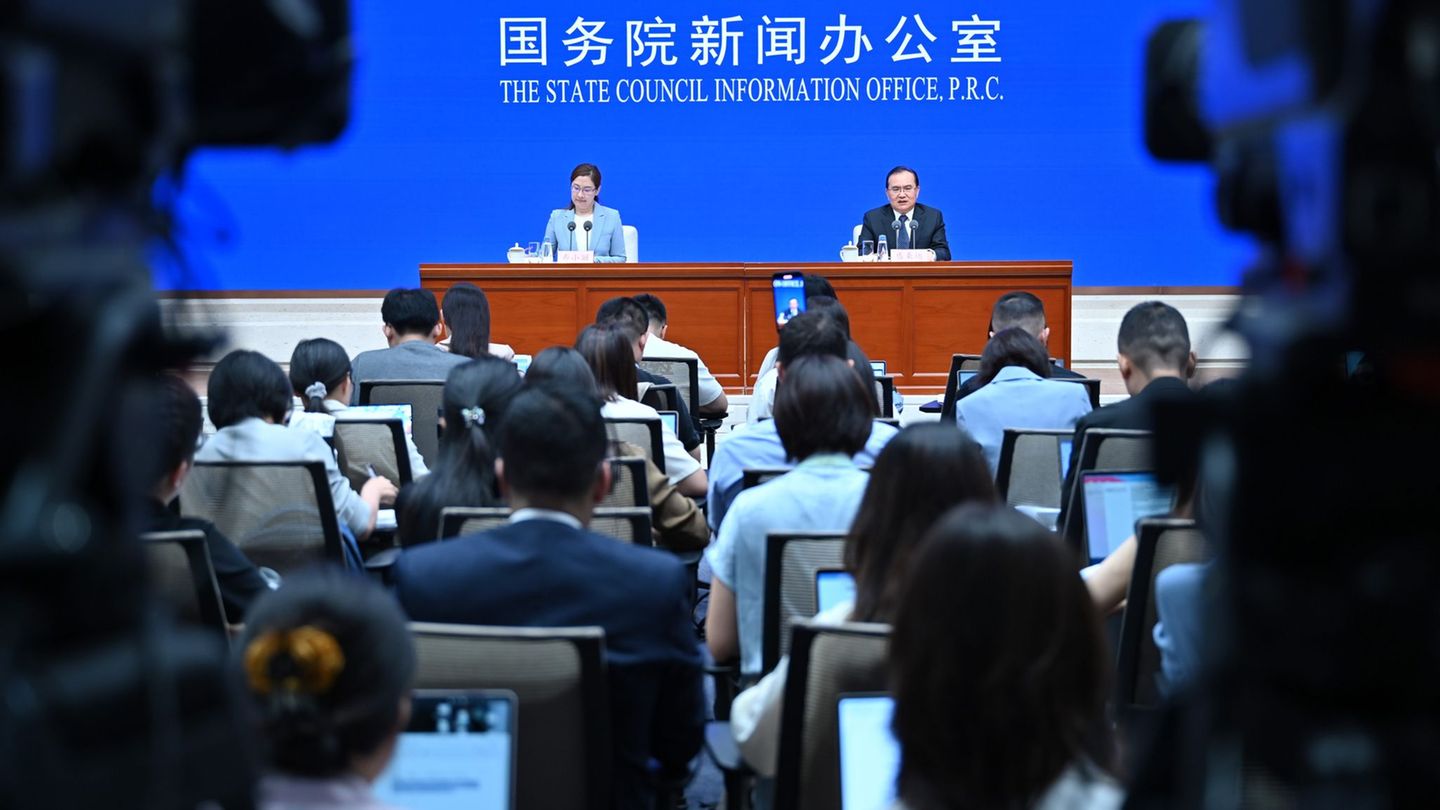Two journalists are among the first to report the death of a young woman, which sparks a massive wave of protests in Iran. You will be arrested. Now the processes should begin.
A hug in mourning: The photo of the parents of the deceased Kurd Jina Mahsa Amini went around the world and triggered violent protests in Iran. Journalist Nilufar Hamedi published the picture on social media in mid-September, taken shortly after the young woman’s death. Morality guards had violently arrested her because of an allegedly ill-fitting headscarf. Amini fell into a coma and died a little later.
Security forces search apartment
Countless women have had their own experiences with the notorious morality police, but details of the arrests rarely come to light. The death of the young Kurd hits a nerve and sets Iran’s most serious protests in decades rolling. The young journalist Elahe Mohammadi also reports on Amini, travels to her Kurdish hometown of Saghes and writes about the funeral, to which crowds flock. It soon becomes clear that the protests will spread like wildfire. Amini becomes a protest icon.
Only six days after the death, security forces searched the home of journalist Hamedi and arrested her. Mohammadi is arrested a week later. Relatives hope in vain for a speedy release. The secret service describes the journalists as “foreign agents” and accuses them of propaganda against the state. Now the controversial trials are about to begin.
In prison for months
The journalists have been in detention for more than eight months. Hamedi is 30 years old. Colleagues describe her as a kind woman who has only done her job and is also familiar with the many red lines in the country. She works for the popular newspaper “Shargh”, which repeatedly publishes critical articles. The 36-year-old Mohammadi has been writing about women’s rights for the Hammihan newspaper for years. Both media vehemently reject the allegations against their employees.
Since the wave of protests, there has been a depressing climate in the country’s editorial offices. “The mood is just bad,” says a journalist from a well-known media company in Tehran, who prefers to remain anonymous. The pressure has increased a lot. Messages from the ministries usually bring the journalists on the wire without major changes. Own reports are meticulously checked “so as not to appear critical”. The woman in her early 40s is dependent on her job. She cannot and does not want to give up.
Observer: Allegations are constructed
A former journalist, on the other hand, has turned her back on her industry. In view of the increasing restrictions on freedom of the press, the woman, who also wants to remain anonymous, is not mourning the loss of her former job. The times of previous presidents were much better when the camp of reform politicians was still in government. She doesn’t want the system to fall. Journalism that initiates change must be possible, says the 52-year-old.
She describes her colleague Nilufar, who took a critical look, as ambitious and talented. She considers the allegations of espionage to be fabricated and the actions of the security apparatus to be bitter. “This will burn a talented generation,” said the woman one afternoon in Tehran.
pressure on relatives
A look at data from the Committee for the Protection of Journalists (CPJ) in New York shows how vehemently the state took action against media workers during the protests. Almost 100 media representatives were arrested, most of them have since been released on bail. Family members are also put under pressure.
Media professionals across the country are now demanding that the trials be publicly negotiated. There is concern that the women face harsh punishment behind closed doors. The case is being heard before a notorious revolutionary court in Tehran, whose presiding judge, Abolghassem Salawati, is known for particularly harsh judgments. The man has been sanctioned by the EU for more than ten years. As part of the recent wave of protests, Salawati has passed several death sentences on demonstrators.
Recognition from UNESCO
The case of the two journalists also receives a lot of international attention. While Nilufar Hamedi and Elaheh Mohammadi are in the notorious Ewin prison, Unesco honors the women in absentia with the UN cultural organization’s Press Freedom Prize for their courageous reporting at the beginning of May. “More than ever, it is important to recognize all women journalists who are prevented from doing their work,” said UNESCO Director-General Audrey Azoulay in the verdict.
Source: Stern
I have been working in the news industry for over 6 years, first as a reporter and now as an editor. I have covered politics extensively, and my work has appeared in major newspapers and online news outlets around the world. In addition to my writing, I also contribute regularly to 24 Hours World.




